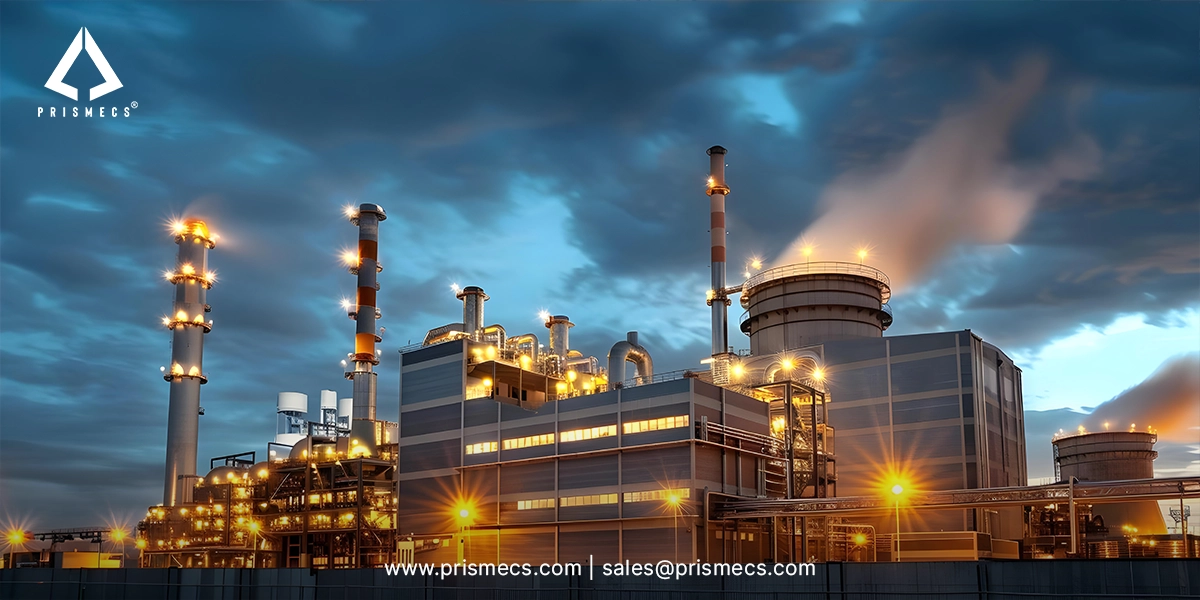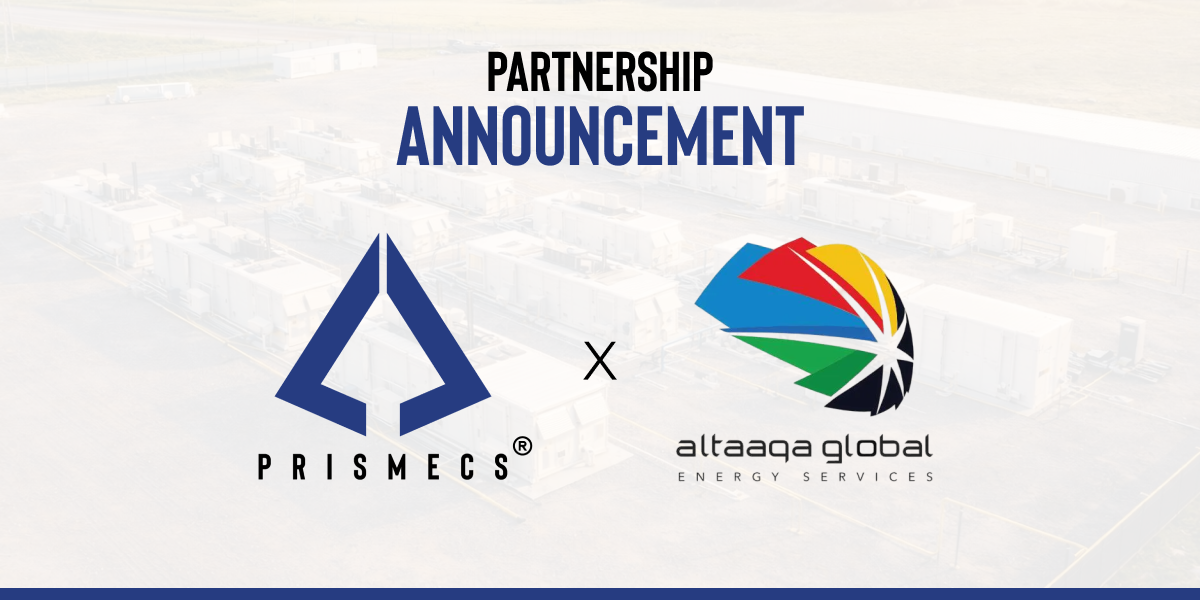
In today’s fast-evolving energy sector, success hinges on more than just groundbreaking technology or capital investment. The true game-changer lies in execution. This is where EPC consultants become indispensable. Whether it's a massive oil and gas facility or a renewable energy project, EPC consultants contribute expertise. They provide strategic guidance and end-to-end solutions that support project development from concept to completion. This blog explores the crucial role of EPC consultants in energy projects. Businesses rely on them for timely, cost-effective, and quality-driven project delivery.
Understanding EPC Consultants in Energy Projects
EPC stands for Engineering, Procurement, and Construction, a project execution model used widely across the energy industry. EPC consultants work alongside EPC contractors, offering technical guidance, vendor selection support, risk assessment, and construction management services. Their insights often bridge the gap between planning and successful projects. They help the project owner navigate complexities across the project lifecycle.
Consultant as Project Advisor
Unlike advisory-only consultants, EPC consultants in energy projects play a hands-on role that directly influences execution outcomes. At this level, their responsibility extends beyond feasibility studies and stakeholder coordination into enforcing constructability, execution discipline, and delivery accountability.
EPC consultants ensure that engineering decisions translate into buildable designs, procurement strategies align with construction realities, and project objectives remain protected throughout execution. Acting as the owner’s technical representative, they safeguard scope integrity, schedule discipline, and quality standards especially in complex energy infrastructure projects where misalignment can result in costly delays.
Risk and Cost Management
Energy projects operate under tight cost controls, regulatory scrutiny, and execution risk. EPC consultants mitigate these risks by applying execution-focused cost control, constructability reviews, and schedule realism grounded in real-world project delivery.
Rather than relying on theoretical planning tools alone, EPC consultants assess vendor capabilities, logistics constraints, and site conditions to prevent cost overruns before construction begins. Their oversight helps owners make informed decisions that balance capital efficiency with long-term operational reliability across oil and gas, power generation, and renewable energy projects.
The Role of EPC Consultants in Project Management
A key reason why EPC consultants are critical lies in their project management capabilities. Large-scale energy projects are complex by nature. They involve numerous stakeholders, regulatory agencies, vendors, and technology partners. Without solid project management, these elements can become disjointed, leading to delays and budget overruns. EPC consultants bring proven methodologies to manage timelines, resources, and risks. They align all phases, from engineering design to commissioning, with the project’s strategic goals.
Their approach includes:
- Developing detailed project execution plans
- Identifying critical paths and milestones
- Coordinating across engineering, procurement, and construction phases
- Monitoring deliverables to ensure long-term performance
Their structured processes enhance visibility, optimize resource allocation, and ensure timely project delivery.
EPC Consultants and Supply Chain Efficiency
One of the biggest challenges in energy infrastructure is navigating the supply chain. Long lead times, material shortages, and global logistics issues can easily derail schedules. EPC consultants play a vital role in preempting and mitigating such challenges.
They help:
- Identify reliable suppliers with a proven track record
- Negotiate favorable terms without compromising quality
- Monitor supplier performance and logistics
- Align procurement timelines with construction schedules
In both oil and gas projects and renewable energy projects, their insights into supplier markets reduce costs. Their insights also help prevent downtime, particularly when working under fixed-price contracts.
Ensuring Quality Assurance and Regulatory Compliance
In the energy sector, failure is not an option. Any deviation from design specifications or safety standards can have severe consequences. EPC consultants serve as the quality gatekeepers of the project. They bring robust quality assurance mechanisms and ensure compliance with local and international regulations.
Here’s how they add value:
- Ensure adherence to engineering codes and standards
- Oversee quality checks during fabrication and installation
- Guide clients through complex regulatory compliance processes
- Conduct audits and inspections throughout the construction management phase
EPC consultants meet standards in fire safety systems at a gas plant. They also verify that load-bearing structures in a solar farm meet all exacting standards. EPC consultants make sure every component aligns with the required specifications and safety requirements.
The EPC Model: Why Single Point Responsibility Matters
The EPC model is valued for its single point of responsibility, simplifying coordination across engineering, procurement, and construction. However, even within this structure, EPC consultants play a critical role in reinforcing accountability and protecting owner interests.
EPC consultants ensure that EPC contractors execute in full alignment with contractual scope, performance guarantees, and delivery milestones. By maintaining independent oversight, they validate progress, manage change orders transparently, and ensure that execution decisions support long-term asset performance not just short-term delivery targets.
EPC Consultants in Renewable Energy Projects
Renewable energy projects such as solar farms, wind turbines, and biomass facilities come with unique challenges. From land acquisition to energy storage integration, the journey from planning to commissioning can be intricate.
EPC consultants offer specialized expertise in:
- Site feasibility and resource assessment
- Selecting and sizing renewable technologies
- Navigating interconnection with the utility grid
- Securing permits and environmental clearances
They also help clients engage qualified engineering, procurement, and construction EPC contractors. These contractors have experience with project development in the renewable sector. Their role is critical in ensuring that these environmentally driven projects remain both technically sound and financially viable.
Strategic Advantages of Partnering with EPC Firms
Partnering with EPC firms supported by experienced EPC consultants delivers strategic advantages that extend beyond construction. These advantages influence project bankability, operational readiness, and long-term performance.
Risk Mitigation
EPC consultants identify execution risks early ranging from site constraints to supply chain exposure and implement mitigation strategies before those risks impact schedule or cost.
Budget Control
Through execution-aligned cost planning and value engineering, EPC consultants help owners maintain financial discipline while preserving technical integrity.
Timely Delivery
By aligning engineering outputs, procurement timelines, and construction sequencing, EPC consultants reduce delays that can jeopardize regulatory approvals, financing milestones, and revenue generation.
Technology Integration
Modern energy projects increasingly rely on automation, monitoring systems, and digital infrastructure. EPC consultants ensure these technologies are integrated seamlessly into construction and commissioning without disrupting execution.
EPC Consultants vs. In-House Project Teams
While in-house teams bring institutional knowledge, EPC consultants provide execution experience gained across multiple energy projects, technologies, and regulatory environments. This external perspective strengthens decision-making during critical project phases.
EPC consultants complement internal teams by offering independent oversight, objective vendor assessments, and proven execution methodologies. Their involvement allows internal stakeholders to focus on strategic objectives while ensuring that project delivery remains disciplined, compliant, and aligned with performance goals.
The Role of EPC Consultants in Contract Structuring
The structure of an EPC contract determines how responsibilities, risks, and rewards are distributed. Poorly defined contracts lead to disputes, misaligned incentives, and ultimately failed projects.
EPC consultants play a pivotal role in:
- Drafting the scope of work and technical specifications
- Defining payment milestones and liquidated damages
- Structuring warranties and performance guarantees
- Advising on dispute resolution mechanisms
Their contract expertise ensures that the legal framework supports smooth project delivery, minimizes conflicts, and encourages contractor accountability.
EPC Consultants and Long-Term Performance
The value of EPC consultants doesn’t end at project commissioning.
They contribute significantly to ensuring long-term performance by:
- Conducting post-construction audits
- Supporting performance testing and system validation
- Advising on operations and maintenance (O&M) strategies
- Assisting in training personnel
In projects where equipment lifespan stretches over decades, the decisions made during the EPC phase directly affect future performance. EPC consultants build quality and sustainability into every layer of the project.
Future Outlook: EPC Consultants and the Energy Transition
As the energy sector evolves toward decarbonization and distributed generation, execution complexity continues to increase. Hybrid energy systems, grid integration, energy storage, and ESG compliance place new demands on project delivery frameworks.
EPC consultants are increasingly essential in managing this transition. Their role now extends to integrating multiple technologies, coordinating global supply chains, and ensuring projects meet evolving regulatory and sustainability requirements. In this environment, EPC consultants act as execution enablers transforming innovation into operational, compliant, and bankable energy infrastructure.
Conclusion
The success of modern energy projects depends on flawless execution. EPC consultants drive that flawless execution. Their role spans project management, supply chain optimization, regulatory compliance, quality assurance, and so much more. Whether you’re working on traditional oil and gas projects, you need a qualified EPC consultant’s support. Whether you’re pioneering renewable energy projects, you benefit from a qualified EPC consultant’s expertise. The support of a qualified EPC consultant transforms complexity into opportunity on every project.
They don't just make energy projects happen; they make them succeed.
Partner with Expert EPC Consultants for Your Next Project
At Prismecs, we understand the role of EPC services in shaping high-performance energy infrastructure. Our experienced team of EPC consultants brings deep industry knowledge to every phase of your project. They apply innovative thinking and maintain a strong commitment to excellence throughout the project’s lifecycle.
You may plan a utility-scale renewable facility or expand the oil and gas operation. We offer the insights and execution support needed to drive your vision forward. To avail our EPC services, contact us at +1(888) 774-7632 or email us at sales@prismecs.com.
Tags: EPC Consultants EPC Contractor EPC Contract EPC Model Role of EPC EPC Firms Project Development Engineering Procurement and Construction (EPC Contractors)
recent posts

O&M Services
13 minutes read
How to Choose Turbine O&M Services That Reduce Downtime
Learn how expert gas turbine maintenance protects uptime on General Electric fleets. See how Prismecs reduces risk and restores megawatts faster. Read...

Power Generation
10 minutes read
How to Maximize Uptime in Power Generation Plants
Discover how Prismecs power plant maintenance helps operators prevent outages, protect revenue, and keep turbines running at peak performance. Learn h...

Renewables
8 minutes read
Opportunities in Renewable Energy Development
Explore Renewable Energy Development strategies focused on grid stability, faster deployment, and resilient power systems with Prismecs. Plan your nex...

Press Release
2 minutes read
Altaaqa Global & Prismecs Form Strategic Cooperation to Accelerate Modular Power Deployment Across USA
Prismecs and Altaaqa Global Announce Strategic Cooperation to Accelerate Modular Power Deployment in the United States Houston, TX & Dubai, UAE – Febr...